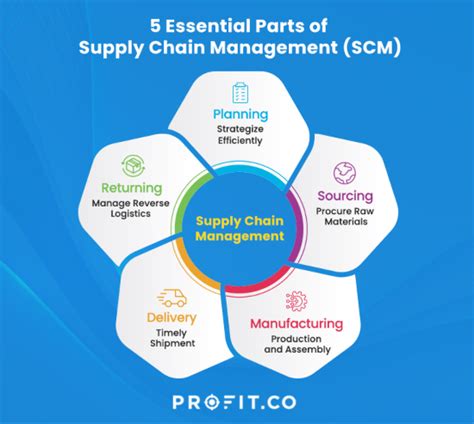Intro
Unlock the secrets of a successful supply chain with our expert guide to the role of a Supply Chain Director. Discover the key responsibilities, skills, and qualifications required to excel in this critical position. Learn how to optimize logistics, manage risk, and drive business growth as a Supply Chain Director.
The role of a Supply Chain Director is crucial in today's fast-paced and interconnected business world. As a key leader in the organization, the Supply Chain Director is responsible for overseeing the entire supply chain, from procurement to delivery, and ensuring that it is running smoothly, efficiently, and effectively. In this article, we will delve into the importance of the Supply Chain Director role, the skills and qualifications required, and the benefits of having a well-structured supply chain.

What is a Supply Chain Director?
A Supply Chain Director is a senior executive responsible for developing and implementing supply chain strategies that align with the organization's overall business objectives. They oversee the entire supply chain, including procurement, logistics, warehousing, and distribution, to ensure that products or services are delivered to customers on time, in the right quantity, and at the right price.
Key Responsibilities of a Supply Chain Director
Some of the key responsibilities of a Supply Chain Director include:
- Developing and implementing supply chain strategies that align with business objectives
- Overseeing procurement, logistics, warehousing, and distribution operations
- Managing relationships with suppliers, vendors, and other stakeholders
- Analyzing data and metrics to identify areas for improvement and optimize supply chain operations
- Collaborating with cross-functional teams to ensure alignment and effective communication
- Developing and managing budgets and forecasts to ensure financial targets are met
Skills and Qualifications Required
To be successful as a Supply Chain Director, one needs to possess a combination of technical, business, and leadership skills. Some of the key skills and qualifications required include:
- Bachelor's degree in Supply Chain Management, Logistics, or a related field
- Minimum 5-7 years of experience in supply chain management, with at least 2-3 years in a leadership role
- Strong analytical and problem-solving skills
- Excellent communication and leadership skills
- Ability to think strategically and make data-driven decisions
- Experience with supply chain management software and technology
- Strong understanding of global supply chain trends and best practices

Benefits of Having a Well-Structured Supply Chain
Having a well-structured supply chain can bring numerous benefits to an organization, including:
- Improved efficiency and productivity
- Reduced costs and improved profitability
- Enhanced customer satisfaction and loyalty
- Increased competitiveness and market share
- Better risk management and mitigation
- Improved sustainability and social responsibility
Challenges Facing Supply Chain Directors
Supply Chain Directors face numerous challenges in today's fast-paced and interconnected business world. Some of the key challenges include:
- Managing complexity and volatility in global supply chains
- Balancing cost, quality, and delivery expectations
- Ensuring supply chain resilience and risk management
- Managing relationships with suppliers and vendors
- Staying up-to-date with the latest technologies and trends
- Managing talent and skills gaps in the supply chain team
Best Practices for Supply Chain Directors
To overcome these challenges and achieve success, Supply Chain Directors can follow some best practices, including:
- Developing a clear and actionable supply chain strategy
- Building strong relationships with suppliers, vendors, and other stakeholders
- Investing in supply chain technology and analytics
- Fostering a culture of innovation and continuous improvement
- Developing and retaining top talent in the supply chain team
- Staying agile and adaptable in a rapidly changing business environment

Conclusion
The role of a Supply Chain Director is critical in today's business world. By possessing the right skills and qualifications, and following best practices, Supply Chain Directors can overcome the challenges facing them and achieve success. A well-structured supply chain can bring numerous benefits to an organization, including improved efficiency, reduced costs, and enhanced customer satisfaction. As the business world continues to evolve, the importance of the Supply Chain Director role will only continue to grow.
Encourage Engagement
We hope this article has provided valuable insights into the role of a Supply Chain Director. If you have any questions or comments, please feel free to share them below. We would love to hear your thoughts and experiences on this topic.
FAQs
What is the primary responsibility of a Supply Chain Director?
+The primary responsibility of a Supply Chain Director is to develop and implement supply chain strategies that align with the organization's overall business objectives.
What skills and qualifications are required to be a successful Supply Chain Director?
+To be a successful Supply Chain Director, one needs to possess a combination of technical, business, and leadership skills, including a Bachelor's degree in Supply Chain Management, Logistics, or a related field, and minimum 5-7 years of experience in supply chain management.
What are some of the benefits of having a well-structured supply chain?
+Having a well-structured supply chain can bring numerous benefits, including improved efficiency and productivity, reduced costs and improved profitability, enhanced customer satisfaction and loyalty, and increased competitiveness and market share.
